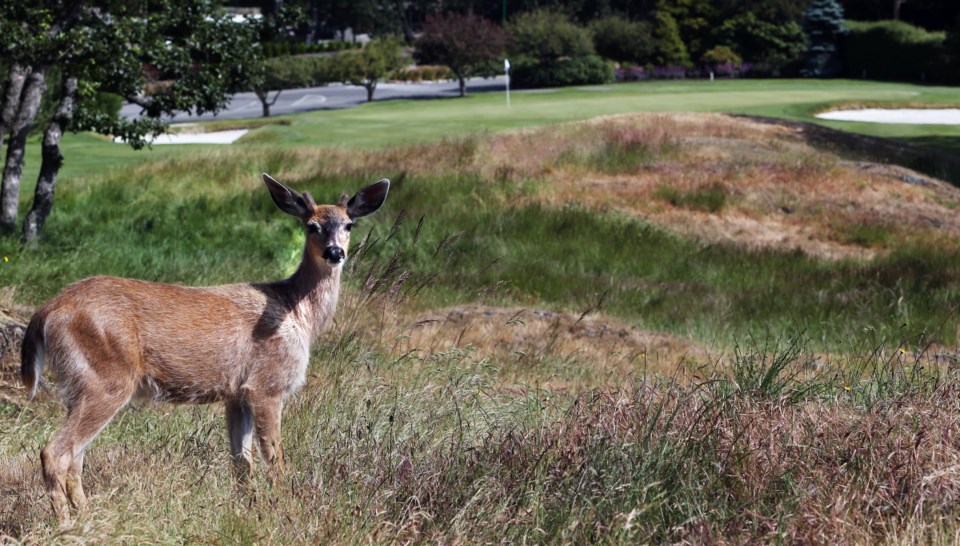The B.C. government wants more research done before it will help Oak Bay pay for its deer birth-control plan.
Oak Bay council asked the province to match funds up to $20,000, allowing the municipality to partner with the Urban Wildlife Stewardship Society to run a deer-contraception program.
The province approved funding for deer culls in Grand Forks, Invermere and Elkford, and for a study on deer relocation in Cranbrook — but not for Oak Bay’s proposal to use immuno-contraceptive drugs to prevent deer from reproducing.
In a statement, the Ministry of Forest, Lands and Natural Resource Operations said Oak Bay’s plan “is a complex undertaking that requires further research into the availability of drugs and careful planning to ensure the drugs are delivered in a humane and effective way.”
The province is asking for clarification on the availability of the contraceptive vaccine in Canada and the method that would be used for injection, Oak Bay Mayor Nils Jensen said.
There has been an “explosion” in the deer population over the past decade, with about 50 deer found dead this year, either hit by vehicles or killed in other accidents, Jensen said.
Oak Bay carried out a deer cull last year. Eleven deer were killed in just over two weeks, sparking protests by the B.C. SPCA and animal-rights activists.
The stewardship society, founded last year, previously lobbied for the use of SpayVac, a contraceptive vaccine, but that vaccine is no longer produced in Canada.
Now, the society is working with a lab that could produce a new immuno-contraceptive, said Steven Huxter, the society’s project manager. An alternative is a vaccine called ZonaStat-H, being used on wild horses in Alberta.
Jensen said the additional research will be likely be carried out early next year by the stewardship society, which includes educators, retired biologists and public servants.
Despite the delay, Jensen said he’s confident the funding will be approved, making the Oak Bay project a model for other municipalities struggling with deer management.
“That’s one of the reasons why we wanted to have this project here, in order to see if it’s effective and, if so, how can it be used elsewhere in British Columbia,” Jensen said.
“There’s not a lot of precedents that we can turn to,” he said. “There are very few other examples of deer fertility control.”
The deer-contraception program must be carried out three to four months before mating season, which starts in September and October, Jensen said. The program would see does trapped, tagged, inoculated and released.



